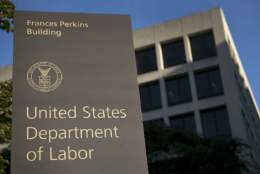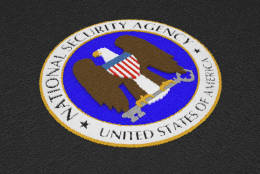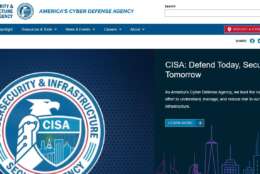Cybersecurity
-
The National Counterintelligence and Security Center (NCSC) leads counterintelligence for the national government. Among its myriad missions is securing the software supply chain. “My directorate is certainly concerned with the supply chain of all critical infrastructure, certainly the supply chain that the IC has to source from as well,” Jeanette McMillian, Assistant Director of NCSC’s Supply Chain and Cyber Directorate said on Federal Monthly Insights – Securing the Supply Chain.
March 23, 2023 -
Agencies have new guidance from the Office of Personnel Management to implement a federal rotational cyber workforce program, which will officially launch this November.
March 21, 2023 -
CISA is requesting nearly $425 million in 2024 to launch a new "Cyber Analytics and Data System."
March 17, 2023 -
The Information Technology Industry Council (ITI) is a global advocate for technology, representing some of the world’s most-notable and innovative companies. ITI promotes public policies and industry standards that advance competition and innovation worldwide.
March 16, 2023 -
Gundeep Ahluwalia, the chief information officer for the Labor Department, said three funding sources, two-year appropriations, a working capital fund and the Technology Modernization Fund, is giving the agency the resources to move to the cloud.
March 16, 2023 -
You could think of integrated circuits (chips), as the smallest building blocks in the nation's critical infrastructure. Recently, the National Security Agency (NSA) issued detailed guidance on keeping what it called "adversarial influence" out of microelectronics used in Defense Department systems.
March 14, 2023 -
Acquisition officials, especially in the Defense Department, worry about why the roster of would-be federal contractors seems to contract every year. Small companies in particular seem to be departing. If could be, the ever-expanding list of rules are driving them away.
March 14, 2023 -
The White House is asking Congress to increase spending on cybersecurity by 13% over the 2023 request and wants to spend $510 million on customer experience initiatives.
March 14, 2023 -
The Biden administration's agenda for the federal workforce next year is coming into focus, with the release of more details supporting its fiscal 2024 budget request.
March 13, 2023 -
The Air Force has several pilot programs to bring its financial management system up to zero trust standards.
March 10, 2023 -
In today's Federal Newscast: The Cybersecurity and Infrastructure Security Agency is looking at a budget bump in the millions. The Technology Modernization Fund is in line for $200 million more in fiscal 2024. And the Agriculture Department goes in search of a better potato to make better chips.
March 10, 2023 -
The new strategy identifies four pillars for improvement between now and 2027, but full details won't be released until the publication of a forthcoming implementation strategy.
March 10, 2023 -
In 2011, billionaire software developer and Netscape co-founder Marc Andreessen wrote a seminal article for the Wall Street Journal about “the software revolution.” He began the piece by proclaiming, “Software is eating the world.”
March 09, 2023 -
In today's Federal Newscast: The data breach at DC Health Link was a big one. SAM.gov also had problems, but GSA says it was not a cyber attack. And OPM is teaching federal job applicants the art of the interview.
March 09, 2023 -
The Air Force believes it's made significant progress toward improving the cybersecurity of its weapons systems — both brand new ones, and systems that have been fielded for decades.
March 09, 2023














